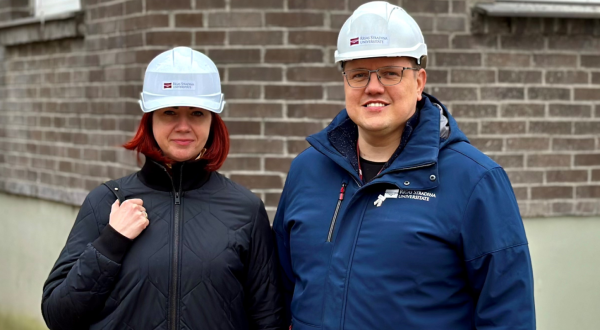Research on more efficient treatment of pancreas inflammation
On 3 November at 15.00 in an open meeting of the Medical Promotion Council of Rīga Stradiņš University which will be held in the Hippocrates Lecture Theatre, 16 Dzirciema St., Rīga, Larisa Umnova will defend her doctoral thesis “Assessment of Chronic Pancreatitis Course Severity and Combined Medical Treatment Using Pancreatin, Proton Pump Inhibitor and Non-Steroidal Anti-Inflammatory Drug”.
The aim of the study was to develop new assessment methods of chronic pancreatitis (inflammation of the pancreas) clinical course severity and pancreas structural change severity, and using pancreatin (an animal derived enzyme) as monotherapy and in combination with a proton pump inhibitor, as well as a combination of pancreatin, a proton pump inhibitor and a non-steroidal anti-inflammatory drug in patients with chronic pancreatitis, to define the most effective medication treatment method among the ones applied.
For assessment of the clinical course of chronic pancreatitis and structural change severity of the pancreas, special methods have been elaborated by using the Clinical pancreatic index and Visual pancreatic index. Within the study both indexes were applied in patients with chronic pancreatitis in the case where medical treatment is required. Patients with chronic pancreatitis who did not require surgical or endoscopic treatment were divided into three groups depending on the type of treatment: 1) pancreatin monotherapy group, 2) pancreatin combination with proton pump inhibitor, 3) combination of pancreatin, proton pump inhibitor and non-steroidal anti-inflammatory drug.
The results of the study show that the Clinical pancreatic index is an objective and valid instrument for the assessment and prognosis of chronic pancreatitis course severity and drug treatment. The Visual pancreatic index shows the level of severity of structural changes of the pancreas in patients with chronic pancreatitis and it can be useful in assessing the indications of the surgical intervention in the case of chronic pancreatitis. Following analysis of the results of the study, it was concluded that the combination of pancreatin, a proton pump inhibitor and a non-steroidal anti-inflammatory drug is the most effective medical treatment for patients with chronic pancreatitis, regardless of the severity of the course of the disease, when compared to the pancreatin monotherapy and pancreatin in combination with a proton pump inhibitor. A month long treatment with pancreatin, a proton pump inhibitor and a non-steroidal anti-inflammatory drug for patients with chronic pancreatitis is safe and does not cause a serious adverse reaction.
The present study is unique due to the following reasons: 1) for the first time specially elaborated quantitative methods – Clinical pancreatic index and Visual pancreatic index – were used to assess pancreas structural change severity and the effectiveness of medical treatment, 2) for the first time research to assess medical therapy effectiveness involving pancreatin, a proton pump inhibitor and a non-steroidal anti-inflammatory drug combination for chronic pancreatits patients was completed, 3) for the first time in Latvia chronic pancreatitis patients before and after medical treatment course had their quality of life assessed with EORTC QLQ-C30 and QLQ-PAN26.
Related news
 RSU is growing and developing: major reconstruction underway in the main buildingDevelopment, For RSU Employees, For Students
RSU is growing and developing: major reconstruction underway in the main buildingDevelopment, For RSU Employees, For Students


